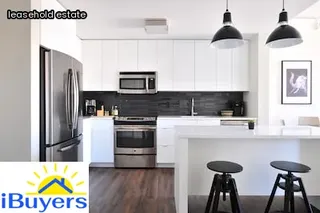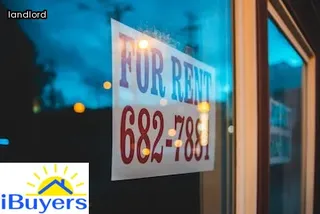In the state of Alabama, the eviction process is regulated by Title 35 Chapter 9 of the Alabama Code. Landlords and property managers should understand that this law outlines the process and timeline for evicting a tenant, as well as tenant rights and landlord responsibilities.
The eviction process in Alabama can take anywhere from two to four weeks and must be done in accordance with the established legal procedures. Eviction notices must include specific language that meets the requirements outlined by the law, such as reasons for eviction, notification dates and deadlines, names of all tenants involved, detailed information about tenancy agreements, and any other pertinent information that may be necessary.
Additionally, landlords must provide written notice to tenants at least 14 days before beginning court proceedings. Once an eviction case is heard in court, a judge will decide if a tenant should be evicted or not; if they rule in favor of eviction then a writ of possession will be issued which officially orders the tenant to vacate the premises within seven days.
Following this timeline is important for landlords and property managers when dealing with evictions in Alabama – failure to do so could result in costly fines or other penalties.

In Alabama, landlords and property managers must adhere to the state’s eviction laws. Grounds for eviction may include failure to pay rent, violating the terms of a rental agreement, engaging in criminal activity on or near the property, or damaging the rental property.
In some cases, a tenant may be evicted for having too many occupants in their unit or for reasons related to health and safety. In addition, tenants are not allowed to withhold rent if they believe repairs have not been made that were agreed upon in the lease agreement.
Landlords and property managers should familiarize themselves with these grounds for eviction before beginning the process of removing a tenant from their rental property.
In Alabama, it is illegal to evict a tenant without going through the proper legal process. However, some landlords and property managers may be unaware of the eviction laws in their state or may try to take shortcuts.
Unfortunately, illegal evictions can lead to costly penalties — for both the landlord and the tenant. It's important for both parties to be aware of their rights and understand the legal eviction process in Alabama.
This guide will explain how long an eviction typically takes in Alabama and provide tips on how to ensure a smooth transition for everyone involved. Knowing your rights as well as understanding what is expected from you throughout the process can help make sure that your eviction goes smoothly and quickly, with minimal disruption for all parties involved.

The Alabama eviction process is a multi-step legal procedure that landlords and property managers must follow in order to lawfully remove tenants from their rental properties. Examining the timeline of this process is important for understanding how long it will take to successfully evict someone in the state of Alabama.
The duration of an eviction case can vary greatly depending on the number of parties involved, the complexity of each individual court hearing, and other extenuating circumstances. Generally speaking, however, landlords should expect the entire process to take between one and three months.
It begins when a landlord issues an official notice to vacate to their tenant, which serves as the first step in beginning an eviction lawsuit. This is followed by a summons or complaint being filed with the court by either party, after which the tenant has seven days to respond or else they will forfeit their right to a hearing.
The following stage involves both parties attending a court hearing where evidence is presented and witnesses are brought forward as needed. If a landlord wins their case in court, then they are granted what's known as a writ of possession which allows them to execute an eviction with help from local law enforcement if necessary.
All told, it’s safe to assume that the average Alabama eviction process takes anywhere from one month up until three months before completion.
The cost of an eviction in Alabama can vary greatly depending on the situation and the length of the process. Landlords and property managers should be aware that they may have to pay court filing fees, service fees, and potentially attorney fees.
Court filing fees can range from $25 to over $150 depending on the county in which the eviction is taking place. Service fees can vary widely as well, with some charging a flat fee for each tenant served, while others will charge a base fee plus additional fees for each tenant or property address.
If a landlord or property manager decides to hire an attorney to help them through the eviction process in Alabama, they should expect to pay anywhere from several hundred dollars for a simple uncontested case up to thousands of dollars if it becomes a lengthy contested case. It is important for landlords and property managers in Alabama to understand all of these costs before proceeding with an eviction so that they can budget appropriately.

Eviction laws vary greatly across the US and it is important for landlords and property managers to understand the different regulations in each state. In Alabama, eviction proceedings can be more complex than in some other states as there are specific time frames that need to be adhered to throughout the process.
Landlords must follow certain steps when evicting a tenant, including serving notice, filing a complaint, attending court hearings and enforcing a judgement of possession. It is also important for landlords to understand the differences between formal evictions and constructive evictions.
All of these factors will determine how long the eviction process takes in Alabama. Other states may have different rules concerning eviction notices or court processes which can affect the length of time required for an eviction.
It is essential that landlords and property managers are aware of all of their legal obligations when it comes to evicting tenants in order to ensure they comply with local regulations and avoid any potential legal issues.
Filling out the necessary forms for an Alabama eviction is a critical step in the eviction process. Every landlord or property manager should have a thorough understanding of what forms need to be completed and where to obtain them.
In the state of Alabama, landlords must fill out an Eviction Complaint form, which is then filed with the local courthouse. This form must include detailed information about the tenant, such as their name and address, as well as any other relevant information that pertains to their lease agreement or rental agreement.
Once this form has been filled out and submitted, a summons will be issued by the court along with a copy of the complaint. The tenant will then receive notice of this summons, which will outline how long they have to respond.
Additionally, an Order for Possession form should be filled out if you are looking to gain possession of your rental property after the tenant has failed to respond within the allotted timeframe. This form is also available from your local courthouse and must be filed in order for you to gain legal possession of your property.

The Alabama eviction process requires a landlord or property manager to provide notice for termination with cause. Depending on the type of cause, the length of notice varies.
Generally, a 14-day notice is required when tenants fail to pay rent in full or fail to comply with the rental agreement. A 7-day notice is necessary for nuisance activity and illegal use of premises, while a 30-day notice must be given for termination without cause.
When evicting a tenant for holding over, such as failing to vacate after their lease has expired, landlords can give either a 7-day or 30-day notice depending on the terms of their lease agreement. All notices must be delivered in writing and should include details of why the eviction is taking place so that tenants can take appropriate action before they are evicted.
The Alabama eviction process is a complex one that requires landlords and property managers to follow certain procedures in order to properly terminate a tenant without cause. Terminations without cause must begin with providing the tenant with a written notice of termination, which must be served in accordance with state law.
The length of the eviction notice varies depending on the type of tenancy and other factors such as whether or not any rent has been withheld by the tenant. Generally, tenants have 14 days to vacate after receiving a notice if they are being evicted without cause, however there are some exceptions.
Landlords must also ensure that all notices are delivered correctly and provide proof of service such as an affidavit or signed receipt from the tenant in order for the eviction process to move forward.

When it comes to the Alabama eviction process, landlords and property managers should be aware of the tenant defenses that may arise. In some cases, tenants may use a defense to try and stop an eviction, such as claiming they were unaware of the lease violation or arguing that the landlord failed to repair a necessary issue in the rental unit.
Tenants may also claim discrimination or retaliatory action on behalf of their landlord if they believe their eviction is being used as punishment for a decision made by the tenant. Additionally, tenants can argue that their lease was never properly terminated or that the evicting party does not have proper legal authority to begin proceedings.
Landlords should always keep these defenses in mind and understand their significance when it comes to the Alabama eviction process.
The process of removal of a tenant from a property in Alabama is often referred to as eviction. Eviction is the legal process by which a landlord or property manager can terminate a tenant’s right to possession of the rental unit.
The length of time for an Alabama eviction process can vary depending on the circumstances and laws in the jurisdiction. Generally, an eviction involves several steps that must be taken to ensure that all rights are respected and the process is conducted in accordance with the law.
The landlord or property manager must first provide written notice to the tenant that their tenancy has been terminated and that they are required to vacate the premises by a certain date. If necessary, legal action may then be initiated by filing an unlawful detainer lawsuit with the court, which requires attendance at hearings and responses to any motions filed by either party.
Finally, if successful, a writ of possession will be issued by the court authorizing law enforcement officers to remove any occupants who remain on the property after being lawfully evicted.

In Alabama, evictions are governed by the Alabama Uniform Residential Landlord and Tenant Act. This act outlines specific rules for landlords, tenants, and property managers about the eviction process.
It is important to understand the rationale behind these rules in order to understand how long the eviction process may take. For instance, under this act, tenants must be given a written notice at least seven days before they can be legally evicted.
This allows them time to find a new place to live or come up with funds to pay rent if they are behind. Additionally, there are protocols in place that must be followed during court proceedings such as specific timelines for filing documents and serving notices.
Understanding these rules can help landlords and property managers anticipate how long an eviction process may take, allowing for better planning of resources such as time and financing.
Speaking to a landlord-tenant attorney is a great way for landlords and property managers to become familiar with the Alabama eviction process. A lawyer experienced in real estate law will be able to provide valuable advice on the best course of action and give an estimate as to how long the eviction process will take.
They also can inform landlords and property managers of their rights as well as those of their tenants, helping them stay within all applicable laws. Further, they can help protect the landlord or manager from potential legal issues that may arise should they fail to follow proper procedures during the eviction process.
With the help of an attorney, landlords or property managers can be confident that they are taking all necessary steps to ensure a smooth and timely eviction process in Alabama.

In Alabama, the eviction process is initiated by serving a notice to the tenant. The type of notice served determines the amount of time given to the tenant to either remedy their violation or vacate the premises.
Landlords and property managers must be aware that there are three main types of notices that can be used in an eviction: Pay Rent or Quit, Cure or Quit, and Unconditional Quit. A Pay Rent or Quit notice requires tenants to pay all past due rent within a specified period of time or vacate.
A Cure or Quit notice requires the tenant to cure their breach of lease terms within a certain timeframe before moving out. An Unconditional Quit notice does not give tenants an option for curing any violations and requires them to immediately leave the property without providing them with any additional time for payment or remedy.
Each type of notice carries its own timeline for compliance, so landlords and property managers should carefully review each option before initiating an eviction in Alabama.
The process of eviction in Alabama is a complicated one that requires thorough understanding of the applicable laws. The first step is for the landlord or property manager to serve a notice to quit on the tenant, which requires the tenant to either pay rent or move out.
If this notice is not responded to, then the next step is for the landlord or property manager to file an eviction complaint with the proper court. After filing, there will be a hearing in front of a judge where both sides can present evidence.
If the judge rules in favor of the landlord, then they will receive an order from the court allowing them to have their tenant evicted from the property. This order must be served upon the tenant by a sheriff or constable, who will carry out the eviction if necessary.
The entire process usually takes about two months from start to finish.

If you are a landlord or property manager in Alabama, it is important to understand the process of eviction and what measures you can take to stop an eviction from occurring. Alabama's eviction process is governed by state law, and though the exact steps may vary from county to county, the overall time frame for an eviction will likely be between two and four weeks.
To prevent an eviction from taking place, landlords should consider first engaging with their tenant in open dialogue. It is possible that both parties may be able to come to a mutually beneficial agreement regarding rent payments or other issues.
Additionally, landlords may be able to offer their tenant alternative housing arrangements if they are unable to fulfill their existing lease obligations. If these methods do not work, however, it is important for landlords to act quickly and seek legal counsel as soon as possible.
Speaking with a qualified attorney can help ensure that all necessary paperwork is filed correctly in accordance with Alabama law and that the entire process runs smoothly.
In Alabama, a 7 day notice to vacate is a formal written document that informs tenants of their landlord's intention to terminate the rental agreement.
This notice is typically sent to the tenant by certified mail with return receipt requested and should include specifics such as the date of termination, grounds for eviction and steps necessary for tenant to take in order to avoid eviction.
After the landlord has issued this notice, they are allowed to begin legal proceedings after seven days if the tenant has not vacated.
It is important for landlords and property managers in Alabama to understand how long an eviction process can take and what measures can be taken in order to achieve a successful eviction outcome.
Evictions can stay on your record for up to seven years in Alabama, according to state law. If you are a landlord or property manager in the state, it's important to understand the timeline of the eviction process so that you know exactly how long an eviction may remain on someone’s record.
This article will provide a guide for landlords and property managers regarding the expected duration of an eviction process in Alabama. Once an eviction has been completed, it is typically reported to various credit bureaus and can remain on one’s record for seven years from the date of filing.
As such, landlords should be aware of this timeline when considering evicting a tenant. It is also important for tenants to be aware of their rights during an eviction process and how long an eviction could potentially remain on their credit report.